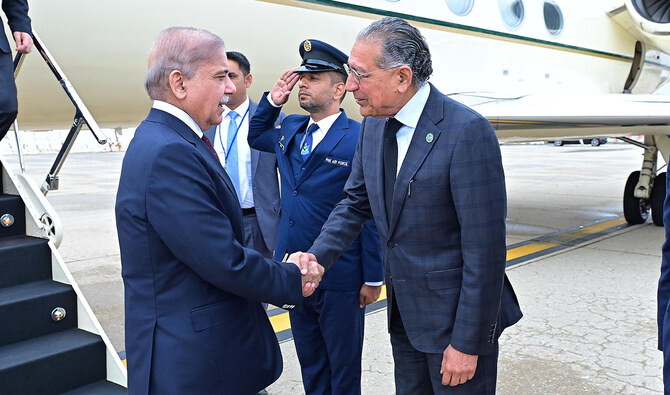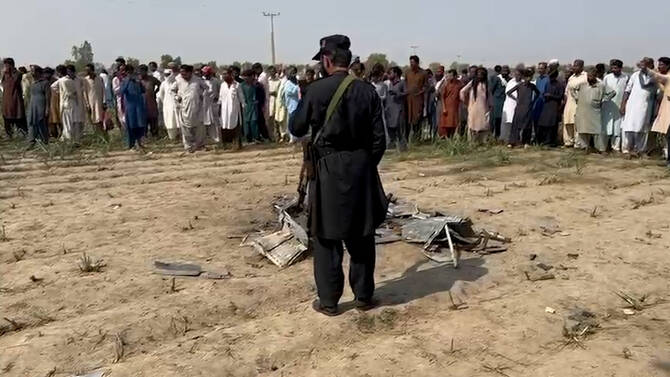ISLAMABAD: Prime Minister Shehbaz Sharif arrived in New York on Tuesday to attend the 79th session of the United Nations General Assembly (UNGA), where he will engage with world leaders on key global issues and present Pakistan’s stance on Israel’s war in Gaza, the Kashmir dispute and “terrorism,” Information Minister Ataullah Tarar said.
World leaders, policymakers, and international stakeholders are arriving in the city to attend this year’s UNGA. Policymakers and global leaders will hold high-level discussions and summits aimed at addressing the world’s most pressing issues.
Sharif will address the UNGA session on Friday, participate in Sustainable Development Goals Moment 2024, attend a high-level open debate of the United Nations Security Council (UNSC), titled ‘Leadership for Peace,’ and participate in a session on the looming threat of rising sea-level, the Prime Minister’s Office (PMO) said previously.
“The prime minister will focus on Palestine and Kashmir issues as well as climate change and terrorism,” Tarar told reporters in New York.
The minister said that the war in Gaza was extremely important for Pakistan, adding that the South Asian country wanted an immediate ceasefire in the Middle East and Israel to be held accountable for its actions.
“Peace is not possible in the world without peace in Palestine,” he said.
Israel launched its war on Gaza on Oct. 7 after Hamas fighters stormed into southern Israel, killing 1,200 and taking more than 250 hostages, according to Israeli figures. Israeli military campaign has since demolished swathes of the besieged territory killed more than 41,000 people, displaced nearly all of its 2.3 million people multiple times, and given rise to deadly hunger and disease in the area.
Pakistan does not recognize nor have diplomatic relations with Israel and calls for an independent Palestinian state based on “internationally agreed parameters” and the pre-1967 borders with Al-Quds Al-Sharif as its capital.
Tarar said the Pakistani prime minister would also focus on the effects of climate change during his visit.
“Climate change is a major issue for Pakistan as the country contributes only 2 percent of the world’s carbon emissions but when it comes to bearing the brunt of climate-related disasters, Pakistan suffers disproportionately,” he explained.
Meanwhile, the PMO said Sharif will spend a busy day in New York today.
“The prime minister will attend the reception given by the United Nations Secretary-General Antonio Guterres for the heads of member states, where he will have an informal meeting with the heads of various countries,” Sharif’s office said.
“Shehbaz Sharif will also hold meetings with UN Secretary-General Antonio Guterres, President of the General Assembly Philemon Yang, President of European Commission Ursula von der Leyen, Founder of Gates Foundation Bill Gates, World Bank President Ajay Banga and Managing Director of the International Monetary Fund Ms. Kristalina Georgieva,” it said.
The Pakistani premier will hold bilateral meetings with other heads of states and attend a dinner hosted by Muhammad Yunus, the chief adviser of Bangladesh’s interim government, on the completion of 50 years of his country’s membership of the United Nations.
Sharif will also meet the US-Pakistan Business Council and Pakistani bankers during his visit and inform them about his government’s business and investment-friendly policies.
Defense Minister Khawaja Muhammad Asif, Information Minister Attaullah Tarar, Education Minister Khalid Maqbool Siddiqui and Special Assistant Tariq Fatemi will also be accompanying the prime minister during the visit.

















